
How I doubled my revenue to $400K+ by doing less
When Shirag Shemmassian broke $100K in revenue with his business, Shemmassian Academic Consulting, he celebrated with the person who shared that success more than anyone else: his wife, Willa.
“My wife and I went to a steak dinner in San Diego Bay and watched the skyline. We opened a bottle of 2006 Malbec. I had bought two bottles years ago. We had one of the bottles during one of our first dates.”
Why was hitting $100K worthy of that second bottle?
“I don’t know why six figures carries this power,” says Shirag. “Getting to $100K, it was just tremendous validation. ‘You’re good enough. You’re doing the right things. Keep at it. You have something big here.’”
That “something big” has gotten a lot bigger in the year-and-change since Shirag and Willa toasted to $100K. So far in 2018, Shemmassian Academic Consulting has doubled top-line revenue over 2017 — and the year isn’t over yet.
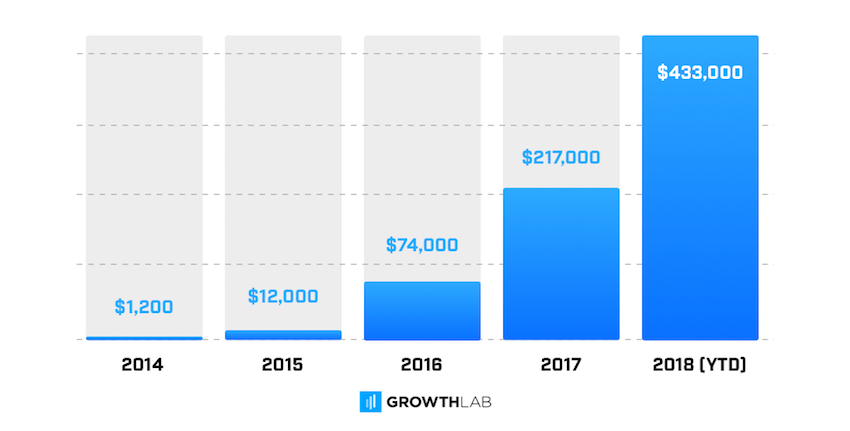
A major catalyst for this explosive expansion? Shirag got a sneak peek of material from a new program we’ve been developing called Double Engine Growth — and the lessons he learned have been powering his growth ever since.
Less than two years after Shirag and his wife opened that bottle of 2006 Malbec, they have another new milestone to celebrate: the birth of their first son. (Born, by the way, mere hours after Shirag talked to us for this story.)
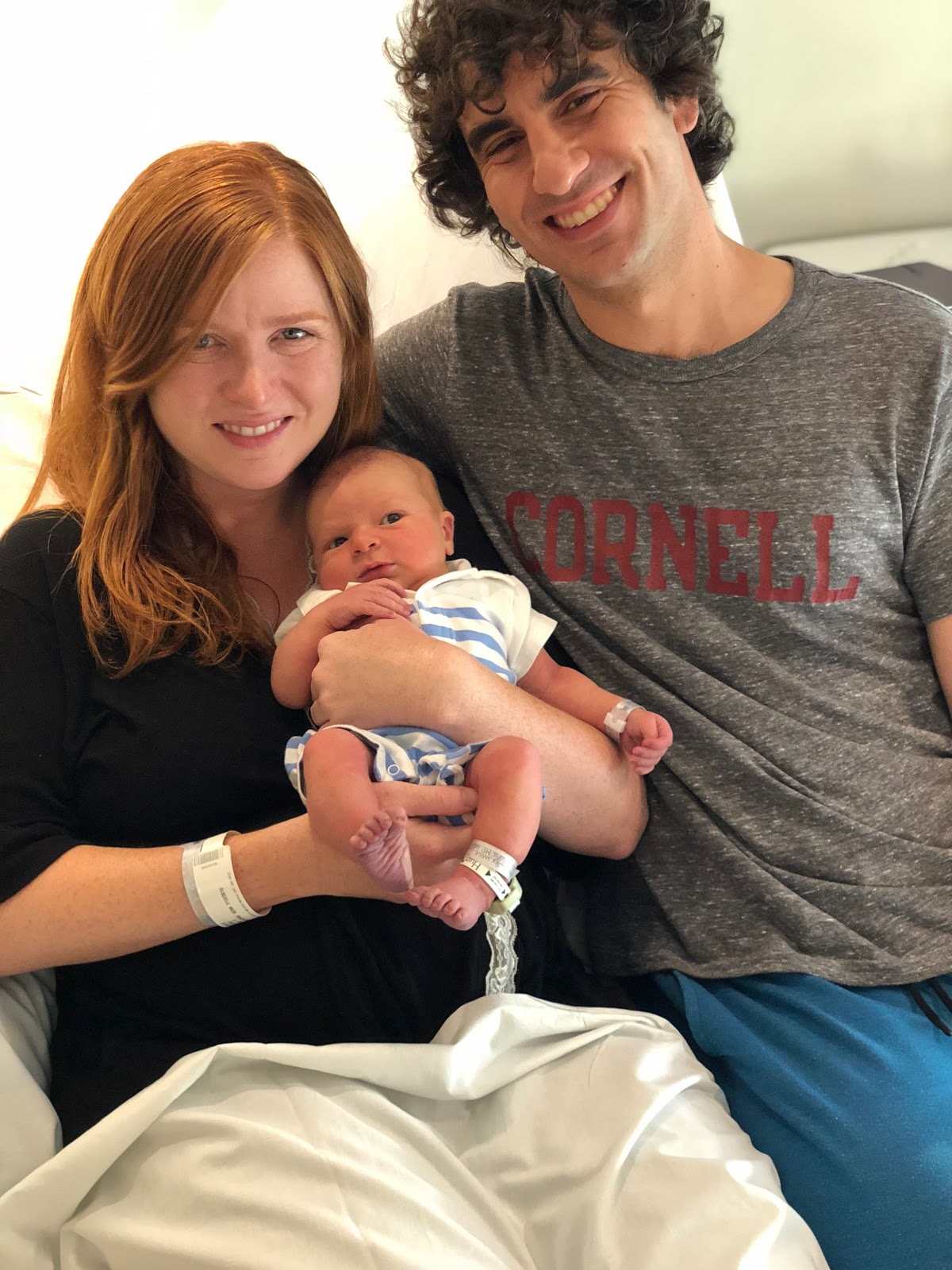
Shirag knows that trying to run his company AND caring for a new baby at the same time would have looked very different two years ago than it does now.
“It would have been wild,” he says. “There are so many fires I would have had to put out, so many day-to-day to-dos that I would have had to take care of. It would have been crazy.”
But here’s the thing: not only is Shirag’s business earning more in 2018 than it has in any previous year — he’s also working less. In the several days he spent with his wife and new son in the hospital, Shirag handled everything he needed to handle in just an hour on his iPhone per day.
Meanwhile, his business chugged along smoothly without him.
The keys to unlocking more growth AND more free time? Two things:
- Delegate
- Double down on what works
“It encouraged me to think bigger about what my goals could be”
Shirag’s business, Shemmassian Academic Consulting, is a service that helps students get into top colleges, medical schools, and other graduate schools.
As is often the case for entrepreneurs, Shemmassian Academic Consulting started as something Shirag was already doing for friends for free: giving feedback on grad school admissions essays.
Then one day, a friend gave Shirag the book Rich Dad, Poor Dad — and changed Shirag’s thinking forever.
“It encouraged me to think bigger about what my income could be and what my goals could be. I grew up in a middle-class family where it was like, go to school, get a good job with good benefits, work for 40 years and retire.’ I always had a bug to do something else, I just didn’t know what it was going to be.”
“Something else” turned out to be Shemmassian Academic Consulting, which Shirag officially launched toward the end of 2014.
Then, in January 2015, Shirag signed up for Zero to Launch — and that’s when things really started to take off. The business brought in $12K in 2015, $74K in 2016, and $217K in 2017.
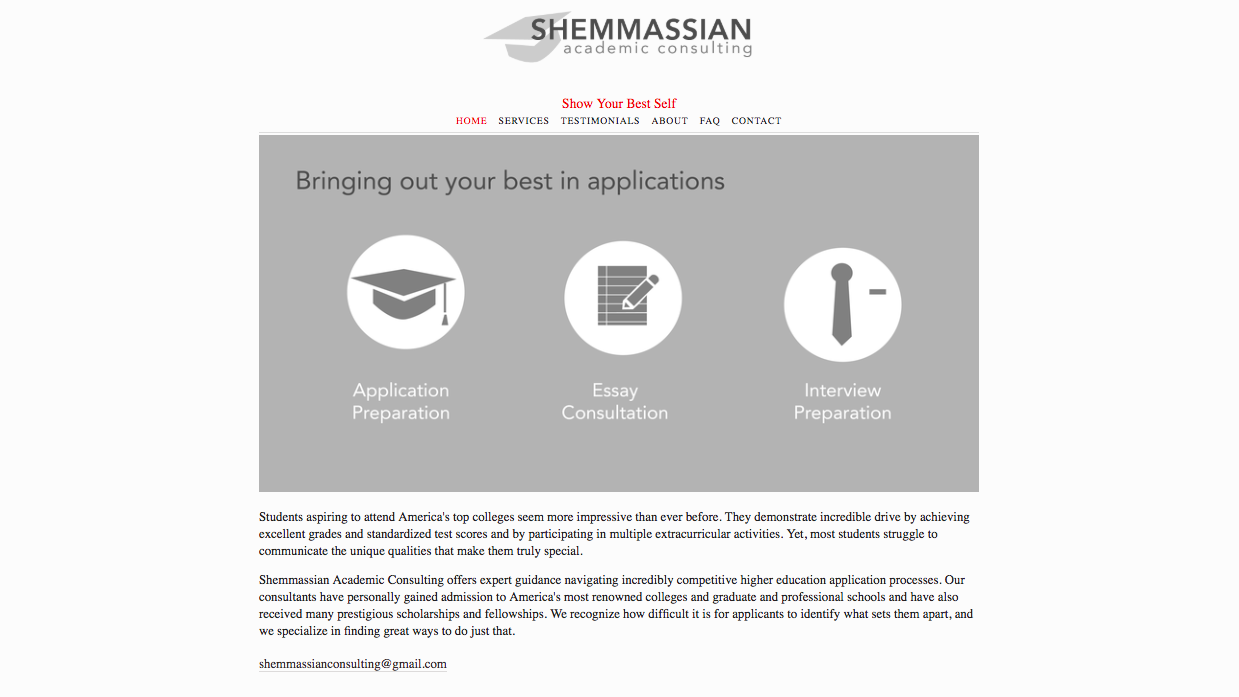
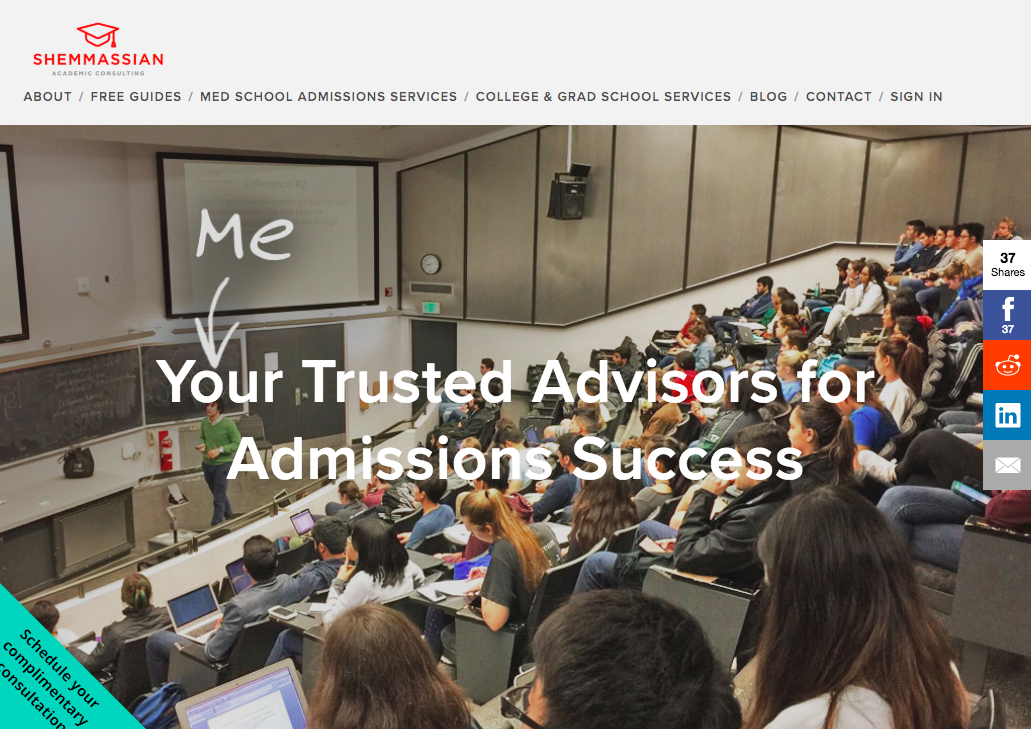
But along with all that growth comes new challenges, and new problems to solve.
When you’re just starting out, the problems are:
- How do I get people to pay for this?
- How do I get this in front of more people?
- What the heck is an email funnel?
When you grow to six figures and beyond, the problems become things like:
- How the heck do I get everything done that needs to get done?
- How do I trust that other people are going to care for my business the way that I would?
- How do I figure out which levers I need to pull to unlock even more growth for my business?
“I feel like there are successive walls,” says Shirag. “I remember the year I made $74K, the next year I was like, ‘Ugh, if I can only get to $100K.’ And then I blew past that. And I set another marker and I blew past that. At every step there’s this wall and I wonder, ‘How do I break through this?’”
Taking stock: What are we doing well? What are we doing less well?
The next breakthrough came in the form of the sneak peek of Double Engine Growth, and an exercise where entrepreneurs look at their business and evaluate:
- What are the strengths of my business?
- What are the weaknesses?
- What are my three priorities for next year?
Among the strengths Shirag saw in his business:
- Strong organic search traffic for medical school admissions space
- High success rate for students leading to increasing levels of word-of-mouth referrals
- A market that expects to pay high prices for the types of services they offer
(After all, when medical school runs you $200,000, what’s an extra $7,000 to make sure you get into the schools that will make it worth your while?)
As for the weaknesses?
- Lack of clarity about how courses fit in with the business, if at all
- Spent too much of 2017 working “in” the business instead of “on” it. Specifically, spending too much time doing coaching rather than working on the big-picture parts of the business
- Producing all content himself, despite competing with huge companies that churn out massive amounts of content
Stepping back and looking at his business this way, Shirag came away with two takeaways that changed the trajectory of his business — and his life working on his business:
- I can delegate way more than I thought I could
- I need to stop chasing “shiny objects,” and double down on what’s already working
Want to build a business that enables you to live YOUR Rich Life? Get my FREE guide on finding your first profitable idea.
Revelation #1: Delegate the things you don’t need to be doing
Shirag had already taken some steps toward delegating toward the end of 2017. But he’d be the first to tell you that handing your business — this thing that you’ve built from the ground up — off to someone else is not an easy task.
“When you start a solopreneurship, especially in the beginning, you’re intimately tied to every part of your business. You’re the accountant, you’re the marketer, you’re the technician. You do everything. It’s sort of like your baby. When you hand something off to someone, there’s an anxiety.
Will they do as good a job as I would? I put tons of sweat equity, a lot of emotion, a lot of disappointed evenings, anxious evenings into making this business. By handing this off, is somebody going to mess it up?”
Pushing through that fear — that’s part of the growing pains of transitioning from being a solopreneur to being the CEO of a soon-to-be seven-figure company.
“The fear is, ‘It’s going to be ruined if I don’t do it.’ That’s a huge assumption. It’s not a fact. Try it. Don’t show up to one of those intro meetings. Did the world end? No? Then it’s probably fine. See if we can do this more systematically.”
Today, Shirag is delegating more work than ever before to his team of contractors. He’s stepped away from 1:1 coaching with clients, handing that work off to trained coaches (with plenty of resources and documentation to help them along). He’s also paid writers to help with content creation. And he has an assistant to help with outreach, scheduling, and other tasks.
“I’ve paid $2,915 to my support person so far this year to help me with financial, administrative, and marketing tasks. That’s about 150 hours of work. Given that I charge $300/hour for my time, it would’ve cost me $45,000 of ‘time dollars’ to do that work,” he says.

The payoff of all this delegation goes way beyond time dollars, though. Because with the time that Shirag has gained by handing off tasks that others can do just as well as he can, he’s zeroing in on the tasks that he and ONLY he can do to move his business forward, like defining processes, and putting himself out there as the face of this organization that his students can trust.
“I’m definitely working less this year than in years prior,” says Shirag. “It’s just that the stuff I’m doing is more meaningful to me now. It’s getting closer to that sweet spot of what I should be doing.”
Revelation #2: Double down on what works
There’s a misconception that growth means doing more of more things. That becomes especially tempting as you start to grow your team: I have all these people working for me — that means I should take on a ton of new projects and try ALL THE THINGS … right?
But here’s a counterintuitive truth: a lot of the time, unlocking growth in your business isn’t about chasing what you don’t have — it’s about doubling down on the things you already do.
Shirag was suffering from a case of Shiny Object Syndrome. He was chasing new projects and new channels — for no other reason than that they were shiny and new.
“I was chasing the tactics that weren’t yet working for me, because the other ones were sort of working. And rather than cultivating the ones that were really working, I was like, ‘Oh, those are fine. Let me focus on this other stuff.’”
Meanwhile, the keys to growth for his business were right there, staring at him in the business he had already built.
Once Shirag completed the business audit, the question that greeted him was: Why?
- Why was he selling online courses that were only bringing in $3,000 in an entire year, when his incredibly popular coaching service was bringing in close to 70 times that amount?
- Why was he spending time trying to coax life out of stagnant social media marketing when he was already bringing in hundreds of thousands of visitors (and tens of thousands in revenue) with organic search through SEO?

With that newfound perspective on what was actually going to make a difference for his business, Shirag moved forward with a few strategic tweaks that helped to unlock his 2X growth:
- He tabled online courses and increased pricing on his most popular consulting package. “Most of our students go straight to the high-ticket items for personalized support because the admissions process is simply so high stakes, they don’t want to take the risk with online courses.”
- He canceled social media in favor of doubling down on SEO. “I hadn’t heard of SEO when I started blogging. I was just reading what else was out there, and I saw that there was a lot of fluff and empty articles. A lot of the articles out there were tips: ‘Five tips to write an admissions essay. Tip 1: Be yourself. Tip 2: Show, don’t tell.’ No examples, no deep descriptions, just a tip, two lines whatever. And I was like, ‘This is totally useless for students.’ So I went into writing these super long-form, meaty articles — before I knew long-form was a good thing. I just felt like this is what students should have. And it just blew up from there. Now I know a lot more about SEO, we do it in a very strategic way.”
- He got aggressive about seeking out speaking out opportunities. “Every time I went to speak somewhere, whether it was a pre-med organization or a parent-teacher organization at a high school or somewhere like that, at least one client signed up. So I asked my assistant to reach out like crazy and just every pre-med organization we can find. And now we’re working on pre-law, pre-grad, and all that other stuff too. And I just spoke like crazy in the early part of this year.”
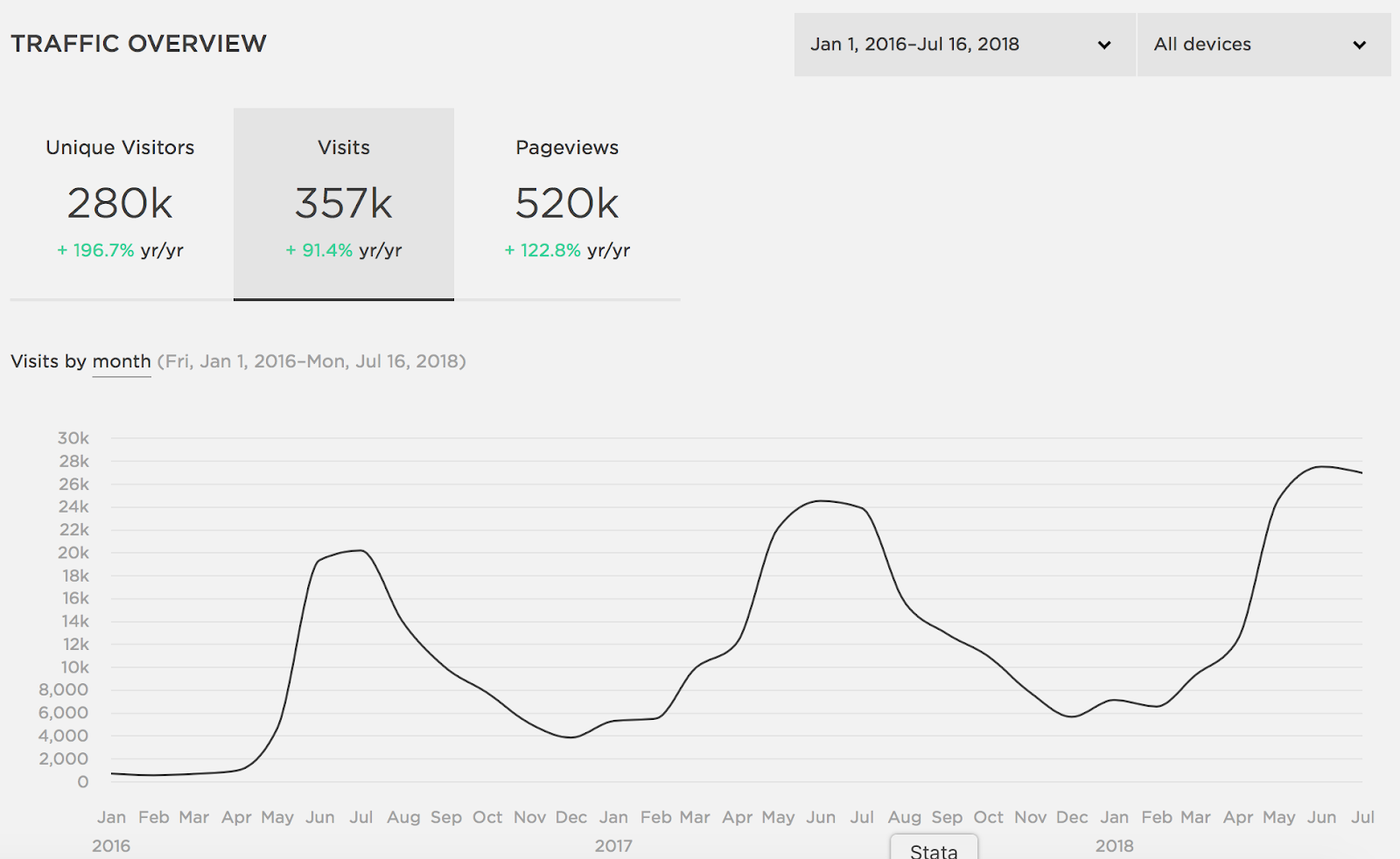
Again, it’s important to stress: these were things that Shirag and his team were already doing — and doing well.
“It sounds so simple. I’m kind of kicking myself — or the two-year-ago version of myself. Do SEO. Get in front of more people. Talk to more people.”
“I think we can do better. I think we can serve more people.”
Shirag has seen firsthand how some small, seemingly simple changes can translate into huge wins in your business. And it’s not just paying off in his business — it’s paying off in his personal life as well.
“This year, my wife and I spend more time together than we ever did over the last two years. Working less, earning more, paying people, helping students. It’s pretty awesome. There are still challenges, of course. But I’m definitely more satisfied with my business than any prior year.”
Just in time, too. I don’t know if you know this about babies, but they take a ton of work.
None of this is to say that Shirag could just walk away from the business entirely tomorrow — but why would he want to?
“The vision that’s sold to a lot of people is, ‘Grow this thing so you can walk away from it and not worry.’ But I still do a lot of things, I just choose which ones I should do and which ones I want to do. And that’s also a huge win, right? Because I get to focus on the areas I like and delegate the rest. And that’s awesome.”
As for what Shirag’s looking forward to with his business now? “This is going to sound super lame, but just continuing to figure things out,” he says.
“If you told me two or three years ago, ‘Hey, Shirag, in 2018 you’ll be operating at this level,’ I would have said, ‘Oh, I would be so happy if I just got there.’ But then you get there, and you’re like, ‘Crap, I think we can do better. I think we can serve more people.’ And when we get to the next level, I’ll probably still have the same feeling.”



